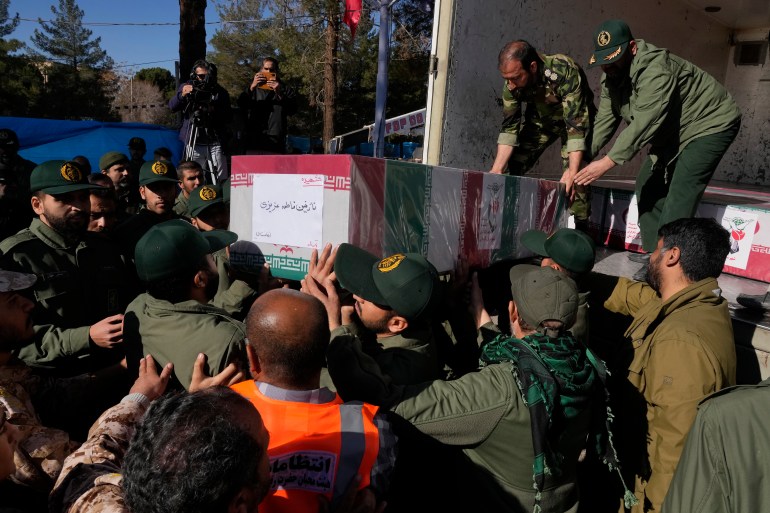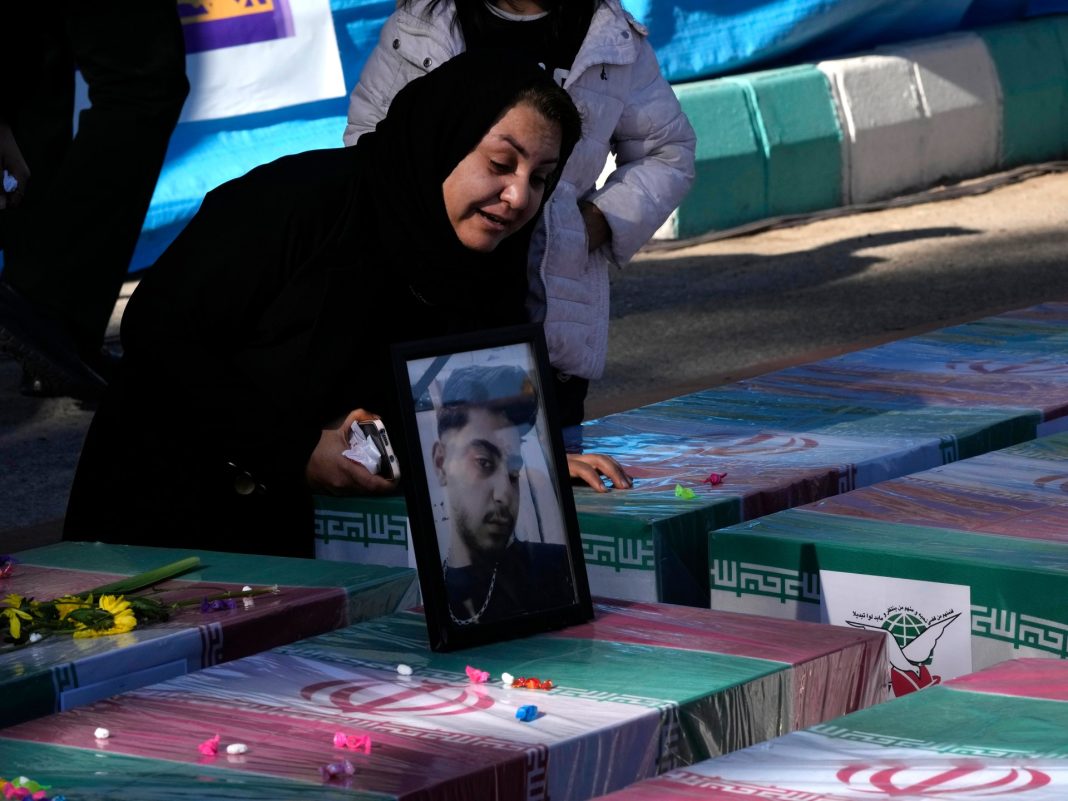The attack claimed by ISIL (ISIS) took place in Kerman on Wednesday during a memorial for top commander Qassem Soleimani.
Iranian President Ebrahim Raisi has promised to retaliate after twin bombings in the city of Kerman this week killed and wounded many people attending a memorial for top General Qassem Soleimani.
On Friday, Raisi addressed thousands of mourners who had gathered in Kerman, about 820km (510 miles) southeast of the capital, Tehran.
He said Tehran’s enemies could see “Iran’s power and the whole world knows its strength and capabilities”, adding that “our forces will decide on the place and time to take action”.
As people paid respects to the victims in front of caskets draped in Iranian flags, they shouted: “Death to America!” and “Death to Israel!”
ISIL (ISIS) claimed responsibility for Wednesday’s bombings in a statement on Thursday.
At least 89 people were killed in the blasts, and more than 280 were injured. Several Afghan nationals were also among those killed.
“We will find you wherever you are,” the commander-in-chief of the Islamic Revolutionary Guard Corps (IRGC), Major General Hossein Salami, told the crowd, referring to ISIL.
ISIL said two of its members had detonated explosive belts in the crowded cemetery where many people had gathered at a memorial for Soleimani, the head of the IRGC’s elite Quds Force, who died in a United States drone strike in Iraq in 2020 ordered by then-President Donald Trump.

State television showed footage from the Imam Ali religious centre in Kerman, where grieving families mourned and people chanted “revenge, revenge”.
The United Nations, European Union and several countries, including China, Saudi Arabia, Jordan, Germany and Iraq, denounced the bombings.
Tehran frequently alleges that both Israel and the US support anti-Iran armed groups involved in past attacks.
In 2022, ISIL claimed responsibility for an attack on an Iranian Shia shrine that killed 15 people. Earlier attacks attributed to ISIL include 2017 twin bombings targeting Iran’s parliament and the mausoleum of Ayatollah Ruhollah Khomeini, the founder of the Islamic republic.
Al Jazeera’s Ali Hashem, reporting from Tehran, said the authorities in Iran were linking the attack to growing regional tensions during Israel’s war in Gaza.
“They can’t see this as isolated from what’s happening across the region,” Hashem said.
“The Iranians have not taken the statement from ISIL seriously. We’ve had the Interior Minister Ahmad Vahidi saying they’re looking into it and that they will have their say in the coming hours.”
The attacks occurred a day after the killing of Saleh al-Arouri, a deputy leader of the Palestinian armed group Hamas, an ally of Iran, in a drone strike in the Lebanese capital, Beirut, raising fears of further escalation in the region following the start of Israel’s war in Gaza on October 7.
Raisi said the end of Al-Aqsa Flood, the name of the operation launched by Hamas on October 7, “will be the end of the Zionist regime [Israel]”.







